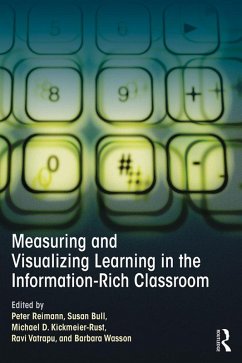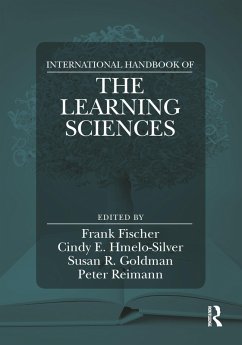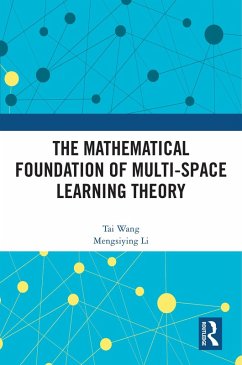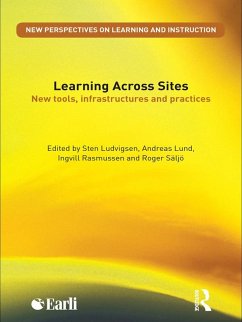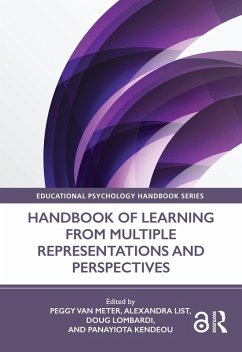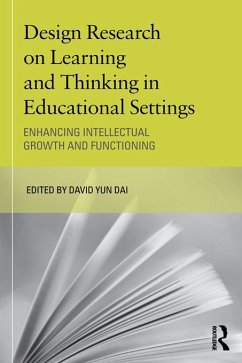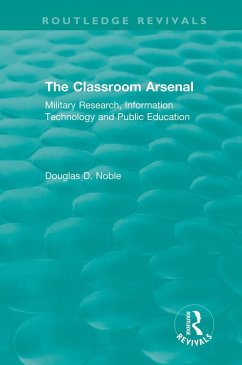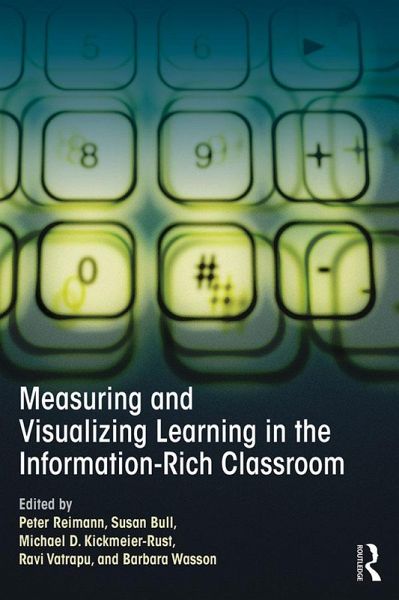
Measuring and Visualizing Learning in the Information-Rich Classroom (eBook, PDF)
Versandkostenfrei!
Sofort per Download lieferbar
54,95 €
inkl. MwSt.
Weitere Ausgaben:

PAYBACK Punkte
27 °P sammeln!
Integrated information systems are increasingly used in schools, and the advent of the technology-rich classroom requires a new degree of ongoing classroom assessment. Able to track web searches, resources used, task completion time, and a variety of other classroom behaviors, technology-rich classrooms offer a wealth of potential information about teaching and learning. This information can be used to track student progress in languages, STEM, and in 21st Century skills, for instance. However, despite these changes, there has been little change in the kind of data made available to teachers, ...
Integrated information systems are increasingly used in schools, and the advent of the technology-rich classroom requires a new degree of ongoing classroom assessment. Able to track web searches, resources used, task completion time, and a variety of other classroom behaviors, technology-rich classrooms offer a wealth of potential information about teaching and learning. This information can be used to track student progress in languages, STEM, and in 21st Century skills, for instance. However, despite these changes, there has been little change in the kind of data made available to teachers, administrators, students, and parents.
Measuring and Visualizing Learning in the Information-Rich Classroom collects research on the implementation of classroom assessment techniques in technology-enhanced learning environments. Building on research conducted by a multinational and multidisciplinary team of learning technology experts, and specialists from around the globe, this book addresses these discrepancies. With contributions from major researchers in education technology, testing and assessment, and education psychology, this book contributes to a holistic approach for building the information infrastructure of the 21st Century school.
Measuring and Visualizing Learning in the Information-Rich Classroom collects research on the implementation of classroom assessment techniques in technology-enhanced learning environments. Building on research conducted by a multinational and multidisciplinary team of learning technology experts, and specialists from around the globe, this book addresses these discrepancies. With contributions from major researchers in education technology, testing and assessment, and education psychology, this book contributes to a holistic approach for building the information infrastructure of the 21st Century school.
Dieser Download kann aus rechtlichen Gründen nur mit Rechnungsadresse in A, B, BG, CY, CZ, D, DK, EW, E, FIN, F, GR, HR, H, IRL, I, LT, L, LR, M, NL, PL, P, R, S, SLO, SK ausgeliefert werden.




